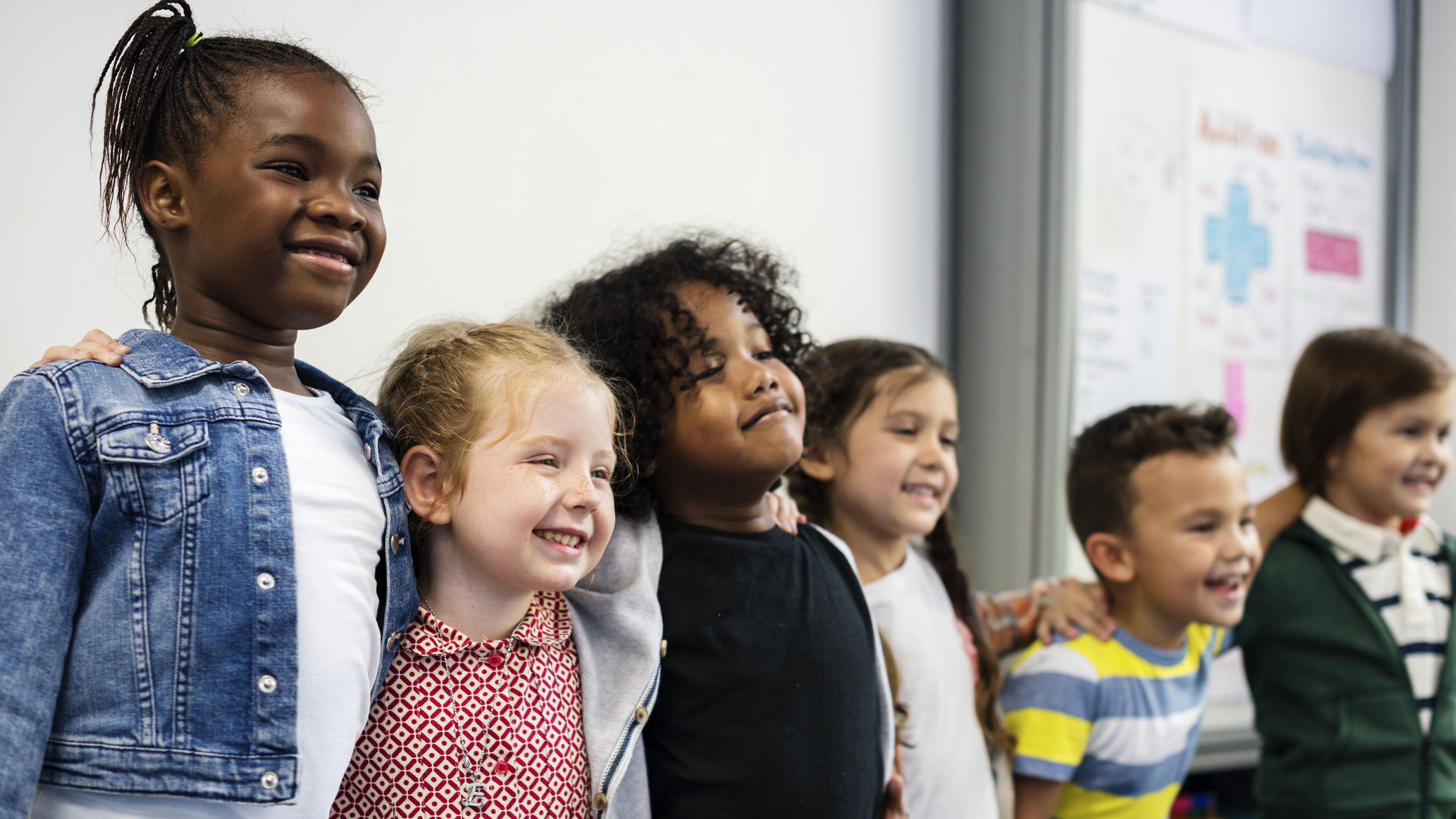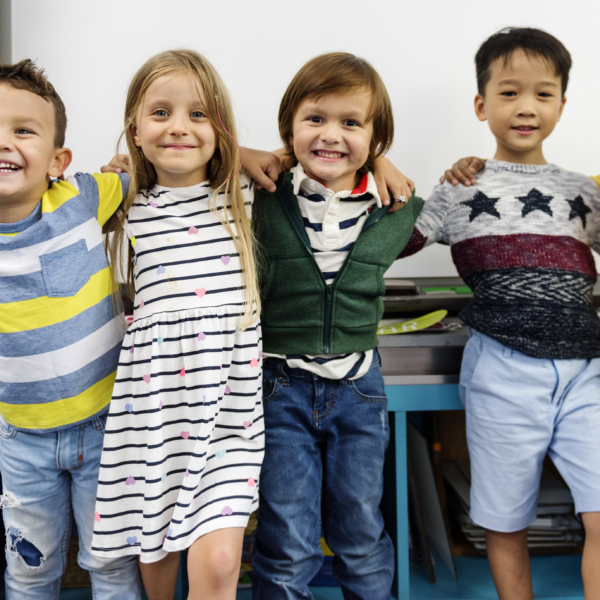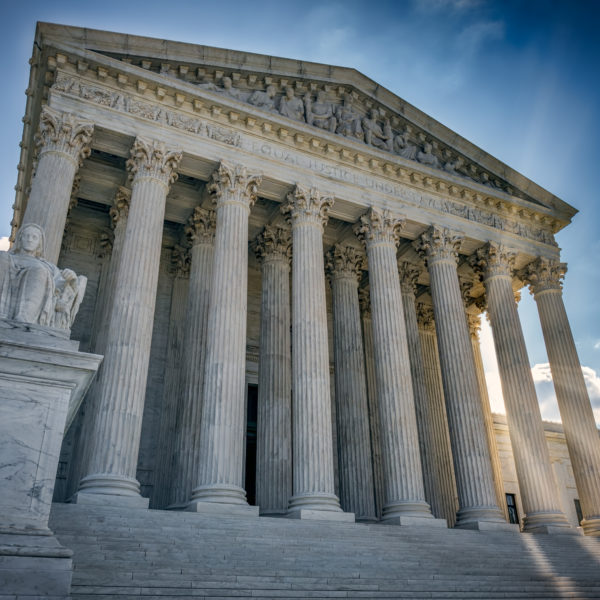Los Angeles — On behalf of plaintiffs Matthew Brach, Alison Walsh, John Ziegler, Kenneth Fleming, Erica Sephton, Lacee Beaulieu, Jesse Petrilla, Roger Hackett, and Christine Ruiz, the Center for American Liberty (@Liberty_Ctr), in coordination with the Dhillon Law Group (@dhillonlaw), filed a lawsuit against (#OpenCASchools) Governor Gavin Newsom challenging order barring in-classroom education in 32 counties and for 80% of California’s children. This decision by the Governor violates the California constitutional guarantee to a basic education, federal due process and equal protection guarantees, and the federal right to an effective education for disabled children.
Roughly 80% of California’s students are being denied a basic education. You can make a difference in their lives. Every child has the right to an education. Your tax-deductible gift in support of our work in Brach v. Newsom can make an education a realty for millions of kids.
Governor Newsom’s July 17, 2020 decree that both public and private school facilities will remain closed at the start of the fall semester, flies in the face of science, data, and the knowledge learned from the failed online education experiment of the 2020 spring semester in California’s schools, during which many children were unable to log on and access online learning—or if they could, experienced at best ineffective and at worst, nonexistent instruction. What’s more, family after family has reported the deleterious effect of being shut-in on their children’s physical and mental health, and have seen them withdraw and lose hope just as they should be focusing on growing, learning, and seeking a better future through education.
In these counties, education will be relegated to online distance learning — which for too many families — particularly those in minority communities, the growing financially distressed population of California, and families of special needs children — means no learning at all. Governor Newsom’s unilateral act even bars parents in most of the state from taking their kids to a private school to obtain the education the state denies!
Plaintiffs represent families from across the state whose rights to a basic education are being denied. Their children have already suffered academically, socially, and emotionally from stunted online education in the spring, and who rightfully fear compounded injury to academic progress and physical/mental health and development in the year ahead. Plaintiffs seek to reopen in-person education as an option for children in their districts.
The science supports Plaintiffs:
- “According to California’s own published reports, not a single minor in the state of California has died as a result of COVID-19.”Seecomplaint page 15 citing California Coronavirus Statewide Update.
- “The CDC reports that children between the ages of 5 -17 are hospitalized at a rate of 5.3 per 100,000 compared to a national average of 113.6.” Seecomplaint page 15 citing the CDC.
- “In late June, the American Academy of Pediatrics (“AAP”) “strongly” recommended that “the coming school year should start with a goal of having students physical present in school.” Seecomplaint page 14 citing to the American Academy of Pediatrics.
- “On March 30, 2020, the Australian Research Council released a study that looked at the early data from China, Singapore, South Korea, Japan, and Iran. The study concluded that while “SARS-CoV-2 can cause mild disease in children, the data available to date suggests that children have not played a substantive role in the intra-household transmission of SARS-CoV-2.” See complaint page 15 citing MedRxIV.
- “Closing of schools had no measurable effect on the number of cases of COVID-19 among children.” See complaint page 17 citing the Public Health Agency of Sweden.
Pediatricians and education experts agree that school opening decisions must be driven by science and data, and warn of the deleterious consequences of school closures on student and family health. Earlier this month the American Academy of Pediatrics, the American Federation of Teachers, the National Education Association and AASA, the School Superintendents Association issued a joint statement reading in part:
“We recognize that children learn best when physically present in the classroom. But children get much more than academics at school. They also learn social and emotional skills at school, get healthy meals and exercise, mental health support and other services that cannot be easily replicated online. Schools also play a critical role in addressing racial and social inequity. Our nation’s response to COVID-19 has laid bare inequities and consequences for children that must be addressed. This pandemic is especially hard on families who rely on school lunches, have children with disabilities, or lack access to Internet or health care. Returning to school is important for the healthy development and well-being of children, but we must pursue re-opening in a way that is safe for all students, teachers and staff. Science should drive decision-making on safely reopening schools.
“Local school leaders, public health experts, educators and parents must be at the center of decisions about how and when to reopen schools, taking into account the spread of COVID-19 in their communities and the capacities of school districts to adapt safety protocols to make in-person learning safe and feasible… A one-size-fits-all approach is not appropriate for return to school decisions.”
But one-size-fits-all is exactly what Governor Newsom has decreed, rather than leaving it to school districts and private schools — some of which were fully prepared to safely open this fall, with elaborate preparations for social distancing, PPE, staggered classes, no-contact sports, sanitization, and provision for distance learning as well — to make decisions they are better suited to make.
For most California students, ‘distance learning” is a failure, across the board:
- “School closings … disproportionately affect minorities, as the NAACP notes” See complaint page 13, citing NAACP report.
- “The AAP also noted that the lack of “in-person learning” could disproportionately affect minorities and those of less socioeconomic means.” Seecomplaint page 14, citing American Academy of Pediatrics.
- “A Brown University study estimated those negative impacts on children to be a loss of 63-68% of the learning gains in reading relative to a typical school year and a loss of 37-50% in learning gains in math.” See complaint page 18, citing the Annenberg Institute at Brown University.
- “Less than two weeks after the school shutdown on March 16, 2020, the Los Angeles School District officials admitted that 15,000 students are completely unaccounted for and more than 40,000 had not been in daily contact with their teachers.” See complaint page 19, citing the LA Times.
“The Governor’s decision to shut down educational facilities in more than 30 counties denies children in these counties their right to a basic education,” said Harmeet K. Dhillon (@pnjaban), Chief Executive Officer of the Center for American Liberty. “California taxes citizens and spends $100 billion of state and federal dollars annually on education,” Dhillon said. “This year, there will be little to show for that massive spending, other than increased depression, suicide risk, stunted learning, and the shattered dreams of millions of California children and families. California families — particularly the most vulnerable — will suffer economic loss, heartbreaking personal choices, and a state that utterly fails its obligations, all based on politics and not science.”
“Governor Newsom’s plan picks winners and losers in schooling based on zip code and tax bracket. Many legal battles in this state have been fought and won to prevent exactly this result,” Dhillon said. “Wealthy parents can still hire tutors and educate their children at home, while most will be forced to choose between their jobs and their children. Special needs children are left out in the cold altogether, despite federal and state mandates. California cannot ignore its legal duties and harm these children, and we will not stand by to see a repeat of the failures of the spring and the lasting impacts on many California families. California deserves better.”




